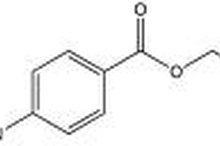Drug List for Sulfa Allergy
Sulfa allergy is the allergic response that occurs from the presence of the compound structure SO2NH2. This compound can be found in the molecular makeup of many different drugs. The term "sulfa" was initially a description of a specific category of drugs, namely the sulfonamide group of anti-infective medications often used in the treatment of bacterial infections. However, there are other drugs whose chemical makeup contains molecules similar to SO2NH2 and are thus suspected of being able to cross-react in the body and elicit an allergic response.
If you are experiencing serious medical symptoms, seek emergency treatment immediately.
Sulfonamides
Sulfonamide antimicrobials are drugs used in the treatment of bacterial infections. They are one of the older classes of anti-infective medications and can be used orally for internal infections like prostatitis, bladder and urinary tract infections, bronchitis, intestinal infections and inflammatory bowel diseases such as Crohn’s disease and ulcerative colitis. It also has topical use for vaginal infections, superficial eye infections and burns. Sulfonamide drugs are often categorized by their common prefix, sulfa-. Common generic sulfonamides include sulfacetamide, sulfadiazine and sulfasalazine, according to Merck Manuals Online Library 1.
The hypersensitivity reaction to this medication usually develops within weeks of starting the drug. A Christchurch Hospital Bulletin notes that the allergy causes fevers, rashes and internal reactions including low blood pressure, low platelet counts and vasculitis 2.
- Sulfonamide antimicrobials are drugs used in the treatment of bacterial infections.
- They are one of the older classes of anti-infective medications and can be used orally for internal infections like prostatitis, bladder and urinary tract infections, bronchitis, intestinal infections and inflammatory bowel diseases such as Crohn’s disease and ulcerative colitis.
Diuretics
Active Ingredients in Sinutab
Learn More
Diuretics are medications that manipulate the concentrations of electrolytes such as sodium to cause water to be removed from the body via an increase in urine. These medications are often termed "water pills" by the layperson. Diuretics operate on the filtration units of the kidneys, the nephrons, according to the University of Kentucky Medical Center, or UKMC. Different categories of diuretics exist, but two common classes--the loop diuretics and the carbonic anhydrase inhibitors--may cause a cross-reactive sulfa allergy, according to a Christchurch Hospital information bulletin 2. Furosemide and bumetanide are two common generic drugs belonging to the loop diuretic class, and acetazolamide and methazolamide are common to the carbonic anhydrase inhibitor class, according to UKMC.
- Diuretics are medications that manipulate the concentrations of electrolytes such as sodium to cause water to be removed from the body via an increase in urine.
- Different categories of diuretics exist, but two common classes--the loop diuretics and the carbonic anhydrase inhibitors--may cause a cross-reactive sulfa allergy, according to a Christchurch Hospital information bulletin 2.
Sulfonylureas
Sulfonylureas are a subclass of drugs used to treat diabetes 3. They work on the pancreas to assist it with the production of insulin. Diabetes is caused by the inability of the body to move glucose or sugar out of the blood and into the cells due to a lack of or inefficiency of the insulin molecules that are produced. Sulfonylureas are believed to trigger a cross-reactive allergy in people who are sensitive to other sulfa drugs 3. Drugs.com lists common trade name sulfonylureas as Glucotrol, Amaryl, Glynase, DiaBeta and GlipiZIDE XL 3.
Celecoxib
The Best Allergy Medicine for High Blood Pressure
Learn More
Celecoxib, more commonly known by the brand name Celebrex, is a potent anti-inflammatory medication useful for chronic or severe pain and inflammatory conditions. Celecoxib also contains a similar SO2NH2 compound, but because it is not identical to the structure of sulfonamide antimicrobials, a 2001 Drug Safety article suggests that it is not expected to produce allergy symptoms as frequently. The Christchurch bulletin nevertheless notes that sulfonamide allergic patients are at a greater risk for allergy than the normal population and that for safety purposes, they should avoid celecoxib.
Related Articles
References
Writer Bio
Dr. Shavon Jackson-Michel is an expert in the field of health and wellness and has been writing for LIVESTRONG.COM since 2009. She is a university-level professor and a licensed naturopathic physician providing individualized consultations on natural and holistic approaches to chronic disease at her Bloomfield, NJ office. Dr. Jackson-Michel is a doctoral graduate of the University of Bridgeport College of Naturopathic Medicine.









